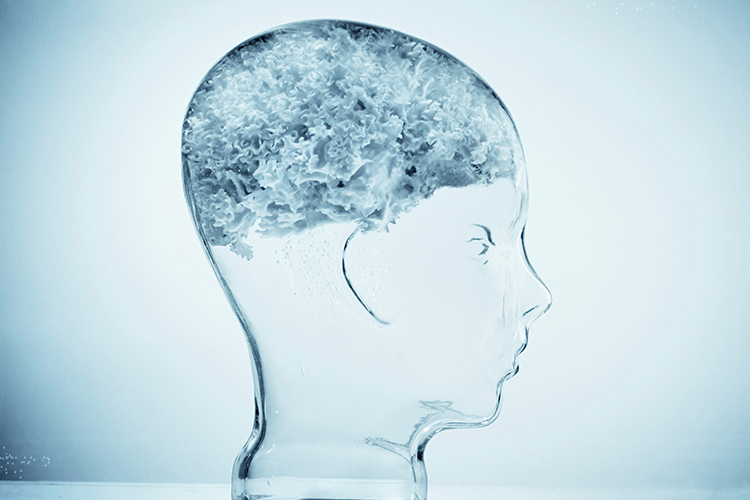Blog
Boost your brain function with…water!
 Yeh, yeh, we know. Drink more water. We hear it all too often. But according to a new study, if you want your brain to do its thing and do it well, you might want to start knocking back your H20!
Yeh, yeh, we know. Drink more water. We hear it all too often. But according to a new study, if you want your brain to do its thing and do it well, you might want to start knocking back your H20!
Research recently published in the American Journal of Clinical Nutrition studied 101 participants to see if low water consumption, measured by 1% body loss due to hypo-hydration, impacted cognition.1
On three separate occasions, participants were randomly assigned to a water and a non-water group, and subjected to 4 hours of 30 degree Celsius heat, followed by 1 hour of cognitive tests. Urine osmolarity, body mass, body temperature and thirst were all monitored.
In the non-water group, they found feelings of thirst were associated with poorer memory, and the longer it went, energy decreased and feelings of anxiety and depression grew. And the decrease in body mass (0.72%) due to loss of water was correlated with poorer memory and attention.
But those drinking nature’s elixir had improved memory and function, and symptoms of decreased energy and shift in mood improved once the water was taken. Overall, better cognition was seen when drinking water compared with those who didn’t.
Amazingly, a drop in body mass as little as <1% from water loss impacted brain function. This is a loss that can easily happen in our every day if you aren’t drinking your water. One is likely to lose more in high heat or with intensive exercise!
This further supports a small but growing body of evidence correlating dehydration with decreased brain function.
Past studies have seen 1-3% loss of body mass due to dehydration impact things like mood, concentration, working memory, and energy. Not enough water may even impact brain structure.2-5
Feed your brain
Considering we are about 60% water, it isn’t surprising brain function goes downhill without adequate hydration!
Water is required by every cell in the body and important for all body functions. It helps transport oxygen and nutrients critical to the brain for optimal function, whilst providing cushioning and lubrication to the brain tissue.
A more recent animal study found that dehydration alters the regulation of cerebral circulation as it induces increased vasopressin levels and oxidative stress. This, in turn, could impact cognitive function.6
So, staying hydrated is one critical factor for supporting the brain. Drinking 1.5 to 2 litres a day is the general recommendation, and important factors to consider include:
- Alcohol and caffeine can be dehydrating as they make you want to pee more. So drink more water if consuming these.
- Herbal teas and fluid from food like vegetables and fruit all count toward water consumed.
- Sugar-sweetened beverages should not be considered a source of hydration.
When it comes to our chow, mostly eating real, whole foods will help brain health and function. Opting for heavily refined and packaged stuff typical of the Western diet not so much. In fact, regularly consuming trans-fat, highly processed, and sugar-laden foods, such as hamburgers, chips, donuts and soft drink, has been correlated with decreased hippocampal volume, negatively impacting memory and mood.7-8
Instead, when deciding what to eat for your brain consider:
- Focusing on eating mostly minimally processed foods
- Include an abundance of antioxidant-rich vegetables and fruit, like leafy greens, spices, and berries
- Enjoy a variety of colours
- Have some good fat foods, like avocado, nuts (like walnuts), seeds (like flax and chia), and oily fish.
And getting good quality and length of sleep is imperative to be firing on all cylinders.
So drink up, eat well, and enjoy some snooze time. Your brain will thank you 🙂
By Angela Johnson (BHSc Nut. Med)
References:
- Benton, D, Jenkins, KT, Watkins, HT, & Young, HA 2016, ‘Minor degree of hypohydration adversely influences cognition: a mediator analysis’, American Journal of Clinical Nutrition, vol. 104, no. 3, pp. 603-612.
- Armstrong, LE, Ganio, MS, Casa, DJ, Lee, EC, McDermott, BP, Klau, JF, Jimenez, L, Le Bellego, L, Chevillotte, E, & Lieberman, HR 2012, ‘Mild dehydration affects mood in healthy young women’, The Journal Of Nutrition, vol. 142, no. 2, pp. 382-388.
- Ganio, MS, Armstrong, LE, Casa, DJ, McDermott, BP, Lee, EC, Yamamoto, LM, Marzano, S, Lopez, RM, Jimenez, L, Le Bellego, L, Chevillotte, E, & Lieberman, HR 2011, ‘Mild dehydration impairs cognitive performance and mood of men’, British Journal of Nutrition, vol. 106, no. 10, pp. 1535-1543.
- Kempton, MJ, Ettinger, U, Foster, R, Williams, SR, Calvert, GA, Hampshire, A, Zelaya, FO, O’Gorman, RL, McMorris, T, Owen, AM, & Smith, MS 2011, ‘Dehydration affects brain structure and function in healthy adolescents’, Human Brain Mapping, vol. 32, no. 1, pp. 71-79.
- Lindseth, PD, Lindseth, GN, Petros, TV, Jensen, WC, & Caspers, J 2013, ‘Effects of hydration on cognitive function of pilots’, Military Medicine, vol. 178, no. 7, pp. 792-798.
- Faraco, G, Wijasa, TS, Park, L, Moore, J, Anrather, J, & Iadecola, C 2014, ‘Water deprivation induces neurovascular and cognitive dysfunction through vasopressin-induced oxidative stress’, Journal Of Cerebral Blood Flow And Metabolism: Official Journal Of The International Society Of Cerebral Blood Flow And Metabolism, vol. 34, no. 5, pp. 852-860.
- Jacka, FN, Cherbuin, N, Anstey, KJ, Sachdev, P, & Butterworth, P 2015, ‘Western diet is associated with a smaller hippocampus: a longitudinal investigation’,BMC Medicine, vol. 13, no. 1, pp. 1-8
- Molteni R, Barnard RJ, Ying Z, Roberts CK, Gomez-Pinilla F. A high-fat, refined sugar diet reduces hippocampal brain-derived neurotrophic factor, neuronal plasticity, and learning. Neuroscience. 2002;112:803–14











